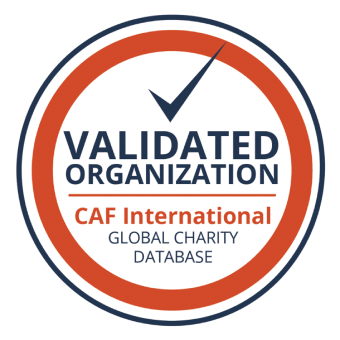Cancer is one of the biggest health challenges in the world, affecting everyone, regardless of age, gender or background. It is even more of a challenge in low- and middle-income countries (LMICs) like India, where barriers to healthcare often mean cancer is detected late, making treatment much more difficult. Early detection can make an enormous difference in treatment completion and survival, which is why regular check-ups are critically important. This is particularly important in children because very often, symptoms of childhood cancer such as fever, pain in the arms and legs, fatigue can be misinterpreted as routine illnesses that affect the growing child.
Why Regular Check-Ups are Vital
Routine medical check-ups aren’t just about maintaining health; they can be crucial for detecting cancer early, especially in places where healthcare systems are stretched. Often, cancers start silently, with no warning signs, so these screenings can identify problems before they become serious.
- Spotting Symptoms Sooner: Doctors can use routine exams to keep track of any changes in health. Screenings like mammograms, colonoscopies, and pap smears can catch early signs of cancers, while it is still treatable. In children, monitoring of growth patterns, milestone achievement, occurrence of unexplained bleeding or lumps by a pediatrician can help direct the parent to a specialist or explore further testing.
- Building Awareness: Regular visits also allow for an opportunity to learn more about cancer symptoms and risks. Knowing to watch for signs like unexplained weight loss, a lingering cough, or skin changes can encourage people to seek care earlier if something seems off.
Who Needs Screening and Why?
Cancer screening guidelines vary by age, gender, and risk level, but they’re particularly critical for people with higher risks.
- High-Risk Groups: For people with a family history of cancer or other risk factors, sticking to screening recommendations is key. This could make the difference between catching cancers like breast or colon cancer early—when they’re treatable—and finding them later.
- Making Screening More Accessible: Geography and cost in LMICs mean that many people cannot easily access healthcare facilities. Making sure everyone has access to screenings can save lives. Public health programs and community outreach are vital for reaching underserved populations, helping to make screenings possible for people who might otherwise go without. In India, Rashtriya Bal Swasthya Karyakram (RBSK), an innovative and ambitious government initiative, which envisages Child Health Screening and Early Intervention Services, through mobile health teams in schools and anganwadis make health screenings more accessible.
Leveraging Technology for Early Detection
While advanced technologies may be limited in LMICs, innovative approaches can help detect cancer earlier.
- Portable Screening Tools: Technologies like mobile ultrasound machines, low-cost diagnostic tests, and simplified imaging can be used to bring basic screenings to remote or underserved areas. Even in low-resource settings, these tools help spot cancers early, giving patients better chances of survival.
Local Success Stories in Early Detection
India has seen some inspiring progress with early detection programs that are making screenings more accessible and raising awareness in communities. These efforts are not only saving lives but also showing just how powerful community-focused approaches can be.
- Breast Cancer Awareness Initiatives: In India, breast cancer is the most common cancer among women, and catching it early can make a world of difference. Organizations like Tata Memorial Hospital and regional cancer centers are working hard to spread awareness. Through campaigns and education programs, they’re teaching women how to do self-exams and encouraging regular check-ups. This outreach is especially impactful in rural areas where healthcare can be hard to reach. The impact? More women are getting diagnosed in the early stages, when treatment is less invasive and survival rates are much higher.
- Community Health Worker Programs: In rural India, community health workers, especially ASHAs (Accredited Social Health Activists), are bridging the gap between communities and healthcare. These workers are trained to spot early signs of cancer and direct people to follow-up screenings. ASHAs are the heart of many villages’ health networks—they know the people, understand the local challenges, and can encourage families to take health seriously. Their work, along with regular health camps, has improved early detection in states like Maharashtra and Uttar Pradesh, making it easier for people to get the care they need, often without leaving their communities.
The Urgency of Early Detection in Childhood Cancer in LMICs
For children, the importance of early cancer detection cannot be overstated. In LMICs like India, where childhood cancer often goes undiagnosed until later stages, regular check-ups are often lifesaving.
- Overcoming Diagnostic Challenges: Symptoms of childhood cancer—like pain, unusual bruising, or weight loss—can mimic those of common infections, which may lead to delayed diagnoses. Basic check-ups and growth monitoring by community health workers can aid in identifying possible signs early.
- Empowering Parents and Families: Educating families on warning signs and the importance of regular pediatric check-ups helps promote vigilance in spotting symptoms of childhood cancer. When parents know what signs to look out for, they’re more likely to seek medical help sooner, which can make all the difference in outcomes.
Conclusion
Early detection is one of the most effective ways to improve cancer outcomes and survival rates. Regular check-ups, accessible screening programs, and education initiatives can all help catch cancer before it progresses, saving lives in communities where resources are limited.
Promoting awareness of the importance of screenings and access to regular check-ups is crucial, especially in underserved communities. For children, routine exams can be the difference between life and death. By prioritising early detection, we’re creating healthier communities and helping more people, young and old, live longer and healthier lives.





